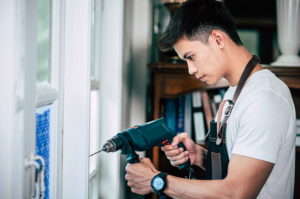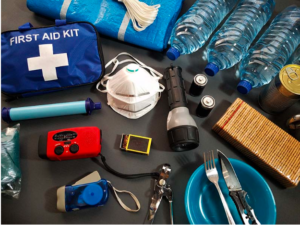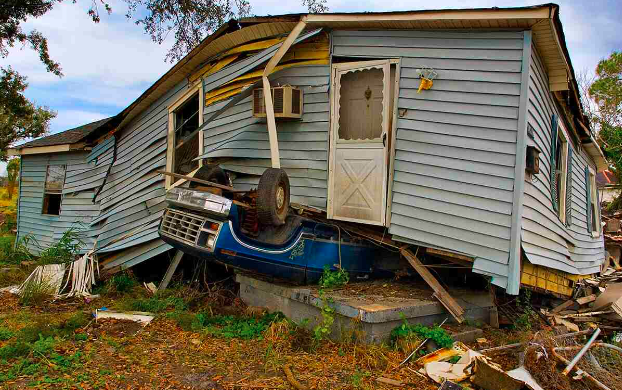As hurricane season approaches, taking proactive steps to safeguard your home and loved ones from the potential devastation these powerful storms can bring is essential. With rising sea temperatures and changing climate patterns, hurricanes have become more frequent and intense. Proper preparation is crucial to minimizing damage and ensuring your family’s safety.
This article provides a comprehensive guide on preparing your home for a hurricane.
1. Create a Family Emergency Plan
Start by creating a well-thought-out family emergency plan. This should include communication strategies, evacuation routes, and meeting points. Make sure all family members understand and practice the plan through regular drills. Designate a friend or relative who lives outside the hurricane-prone area as a point of contact to ensure everyone knows each other’s whereabouts.
2. Secure Your Home’s Exterior
One of the first lines of defense is securing your home’s exterior. Trim back trees and shrubs to reduce the risk of branches becoming projectiles during strong winds. Reinforce windows with storm shutters or board them up with plywood. Check your roof for loose shingles or tiles and repair any issues to prevent further damage.
3. Reinforce Doors and Garage
 Image Source: Freepik
Image Source: Freepik
Don’t forget about your doors and garage. Strengthen external doors with heavy-duty locks and deadbolts, and consider reinforcing them with vertical or horizontal bracing. Garage doors are particularly vulnerable, so install a bracing system or replace them with impact-resistant doors.
4. Strengthen Your Home’s Structure
If you live in a hurricane-prone area, consider investing in building upgrades that can help your home withstand the forces of a hurricane. This may include adding hurricane straps to secure your roof to the frame, reinforcing your roof’s sheathing, and bolting your home to its foundation.
5. Create a Disaster Supplies Kit
 Image Source: Pexels
Image Source: Pexels
Stock up on essential supplies before hurricane season hits. This includes non-perishable food, bottled water, medications, first aid supplies, flashlights, batteries, a battery-powered weather radio, and important documents. Your kit should sustain your family for at least three days in case of power outages and disrupted services.
6. Develop a Home Inventory
Document your possessions through photographs or videos, and keep important documents like insurance policies, identification, and medical records in a waterproof container. This will make filing insurance claims and proving ownership easier if your belongings are damaged or lost.
7. Reinforce Your Landscaping
Secure outdoor furniture, gardening tools, and other loose items that could become projectiles during a hurricane. Trim weak branches and remove dead trees to prevent them from falling onto your home or causing damage to power lines.
8. Backup Power and Generators
Invest in a backup power source, such as a generator, to keep essential appliances running during power outages. Ensure your generator is properly installed and maintained to avoid carbon monoxide poisoning. Only operate generators outdoors and away from windows, vents, and doors.
9. Waterproof Your Basement
If your home has a basement, take steps to waterproof it to prevent flooding. Install a sump pump and consider applying waterproof coatings to walls and floors. Elevate valuable items stored in the basement onto shelves or raised platforms.
10. Evacuation Plan
 Image Source: Freepik
Image Source: Freepik
Know your area’s evacuation routes and shelters. If authorities recommend evacuating, do so promptly to ensure your safety. Pack a smaller version of your disaster supplies kit for each family member, and remember to include essentials for pets if you have them.
11. Stay Informed
Stay tuned to reliable weather forecasts and local authorities for updates on the storm’s path and severity. A battery-powered weather radio can provide crucial information if other communication channels fail. Keep your mobile devices charged, and consider portable chargers.
12. Post-Hurricane Safety
After the storm passes, exercise caution when returning home. Look for structural damage, downed power lines, and gas leaks before entering your home. Avoid flooded areas, as they may hide dangers such as debris, sewage, or live electrical wires.
Conclusion
Preparing your home for a hurricane demands careful planning and proactive measures. By creating a solid emergency plan, securing your home’s exterior, stocking up on supplies, and staying informed, you increase your chances of weathering the storm and protecting your loved ones and property. Remember, the key to safety lies in your preparedness and readiness to adapt to a hurricane’s challenges.


